Gordafarid Salahshouri, citizen journalist
Perhaps what I am going to say will offend men, especially older men, who would accuse me of sexism, but I brave it. My view is confirmed by my observations and my life experience.
Until last year and ever since my father passed away, my mother always managed to find friends and companions. As long as she was able to, she went to the park with her walking stick, manicured her nails, socialized with young men and women and accepted their help when she was carrying a shopping bag.
A clean house was very important to her, and her wardrobe smelled of flowers, just like when my brothers and I were children. If my mother had died sooner, the house would have smelled awful and the daughters and the daughters-in-law would have had to take turns to send my uncle food every day so that, perhaps, his temper would improve and he would obsess less about getting married again.
I said all these to boast that now, at the age of 70-something, I am also like a widow who invents new goals every day to give her life some meaning and order. Who knows, perhaps before departing this world I can save an old man from melancholia and apathy…
But let me spare you from having to read these personal ruminations. Nowadays, for reasons that I explained in my previous blog, people in our neighborhood do not start chanting slogans at 9 p.m. I have a friend around my own age who has two daughters and a son, all unmarried, and they live together in Ekbatan Town thanks to expensive rents, low income or high unemployment rates among the educated youth.
At my suggestion, they bought an electric korsi for 400,000 tomans and a voltage stabilizer for 16,000 tomans so that they can use less central heating. (A korsi is a traditional piece of furniture consisting in a low, wooden low table covered with blankets, with a heater underneath it.)
Perhaps, it would also help with the gas shortages in South and North Khorasan, in Markazi province and in some cities in the north. At night, young people can seat around an electric korsi to read books and talk politics.
I have yet to crawl properly under the electric korsi’s blanket in Ekbatan when the young ones wrap their mufflers around their necks, wear a mask and set out at night toward Fitness Trail to chant slogans and make videos of their march.
Since plainclothesmen and riot police shot pellets at the windows in Ekbatan Town and at whatever they could find at the entrances to the buildings, protesters who sometimes call Ekbatan the “civil resistance town” go to covered passages and parking lots, write slogans on every column or rewrite them after the municipality or members of the paramilitary Basij force wipe them off.
To get an idea of the depth of discontent among the educated urban residents, it is enough to have a look at the walls covered with slogans.
Sometimes, for around half an hour, these young protesters go up and down the Fitness Trail, which happens to be a favorite encampment for the town’s cats as well, passing in front of cafés, bakeries and groceries before returning to their apartments until another night.
Let’s go back to the electric korsi. For around half an hour after the young ones have left us by ourselves, my old, widowed friend and I talk about the generation who did the 1979 revolution. My friend does not regret what her generation did. She says, “No matter what, both we and the past regime, the rulers and the ruled, shared an ignorance that prevented us from anticipating the consequences of overthrowing the government and from preventing the emergence of yet another tyranny.”
“I agree with you,” I say. “A tyrannical government both destroys a chance to reconcile with its subjects and does not give them a chance to learn how to play a role in deciding their own destiny. As a result, when a tyrannical government is overthrown, the younger generation wants to reinvent the wheel and you can see the results.”
“You blame the [previous regime’s] tyranny but whatever we say is not important because the 1979 generation only represents 5 percent of the current population. Our generation is not important to anybody, and we have no wisdom to offer to the young generation to satisfy what they need today. Most importantly, your generation and mine have no experience in reining in the power of the government and in balancing powers to teach the young people.”
Without moving away from the electric korsi, my hostess picks up my teacup and pours tea with the other hand. Then she browses Telegram channels and, after finding nighttime protests in the Tehran neighborhoods of Narmak and Shahran, her wrinkled face becomes a little bit smoother and less pale. “Here, look!” she says.
She holds the screen of her mobile phone which is displaying a Telegram channel in front of my eyes: “It is true that nothing is happening at night in your neighborhood, but they have started again in Narmak. There is also a video from the neighborhood of Gisha. In some parts of Yousef Abad and Sa'adat Abad they are again shouting slogans from their windows. Right now, our children in Ekbatan are celebrating the (ancient Presian) Sadeh festival. Who could have imagined that the Sadeh festival would become an excuse for protests?’
Panting and feeling victorious, the young ones return and place themselves around the electric korsi. I present them with a summary of my discussions with the mother of the family.
Ziba, a well-read girl who always has something to teach me, takes over the conversation: “Some say that this regime must be overthrown as soon as possible, otherwise the Iranian civilization as a whole would perish.”
“They speak as though the problems of drought, desertification, the destruction of oak forests in Zagros, the construction of villas in the Hyrcanian forests in Alborz, the brain-drain and, more important than anything else, liberty and equality for all Iranian regardless of ethnic identity or religion would be solved in the blink of an eye the day the regime changes.
“Your generation — my apologies — was deceived by promises, did not ask where the money for all the changes will come from and did not understand at all that good or bad, wise or unwise, does not apply to absolute power. Now, if this civilization that you say is six or seven thousand years old would vanish if there is a delay of a few months, I say, well, let it vanish!”
Ziba’s brother, who is preparing to defend his master’s degree thesis in mechanical engineering, addresses me, his mother, his sister and two other youths around the electric korsi: “If this regime does not fall within a few months, then why shouldn’t I try to get a PhD or go to work abroad?”
His mother steps in: “Now you say that if victory or, as you put it, the downfall of the regime, does not happen by a certain day, month or year, you are going to leave. OK, leave. If you are looking for an excuse, then leave! The door is open. It would be another sorrow on top of other sorrows.”
An angry Ziba tells her brother: “Around five months have passed since the death of Mahsa Amini and you still don’t understand that political developments don’t solve everything? Don’t you understand that a regime change by itself does not change social relations, division of labor, family relations and equality before the law? The revolution must be cultural and social as well and the struggle ahead of us is going to be long and perhaps bloody, whether we are against violence or not. And do you think you will forget about here if you go to another country?”
“So, we must live with the same slogans - ‘Woman, Life, Freedom’ and ‘Death to Khamenei’ and ‘Death to the dictator’ - for months and perhaps years to come?” I ask.
“Yes,” she says. “The same Marx whose works you and the older generation have read also believes that the benchmark for progress and justice is how equal men and women are in every aspect of society. Besides, little by little, we must explain to our silent majority the differences between what we mean by freedom today and what your generation meant by freedom in 1979. If necessary, I would loudly read every page of Isaiah Berlin’s book (“Two Concept of Liberty”) on the distinction between positive and negative liberty during night protests in Ekbatan so that everybody understands that our generation wants the same positive liberty that Isaiah Berlin’s book is talking about, even though they have not read the book. They do not want the kind of freedom that the generation of 1979 wanted, i.e., freedom from imperialistic domination without individual freedoms.”
A young man who seems to be Ziba’s friend joins the conversations. His family lives in the northern city of Gorgan, and his great grandfather moved from Zabol in Sistan and Baluchestan to Gonbad-e Kavus in northern Iran to cultivate cotton. He says, “We, the protesters, must not forget about the institutions that the Islamic Republic has created. Look at the Friday Prayers in Zahedan. Every week it provides an opportunity for keeping the flame of protests alive even though they arrest the associates and advisors to the Friday Imam one by one, put them on trial or destroy them physically. Which one of you ever thought that Molavi Abdolhamid would defend all Iranians in his sermons, even the Baha’is and the educated who do not believe in the Islamic Republic? Or in the field of football: wherever there are spectators we are sure to hear anti-regime slogans and the authorities believe that the solution is to hold games without spectators or with few spectators. For a long, long time to come, we, the opposition, must continue arguing until we gradually arrive at common aims and accept our differences.
“And with this horrible economic situation, those who have been passive cannot remain passive, even if a neighborhood remains silent and calm for a week or 10 days.”
It is close to midnight and the well-read Ziba volunteers to take me home. As I am getting out of the car, in order to show that her arguments have convinced me, I express “hope that today’s protesters are not after getting a new, premature regime by caesarean section that would regenerate the vicious circle of tyranny without a social and cultural revolution.”
visit the accountability section
In this section of Iran Wire, you can contact the officials and launch your campaign for various problems




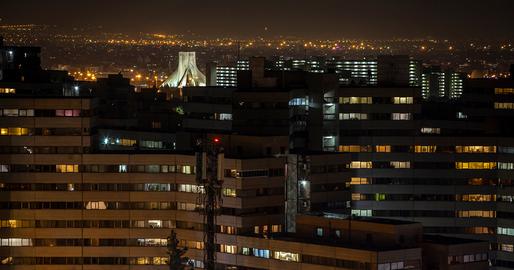

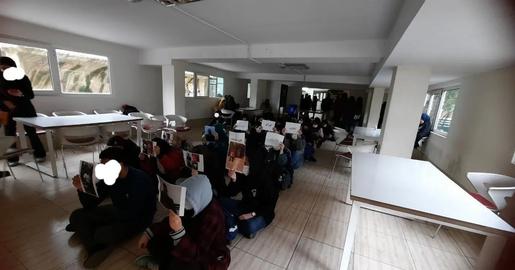
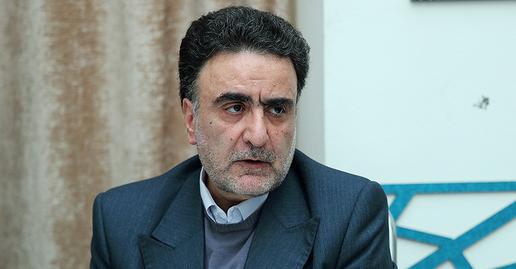
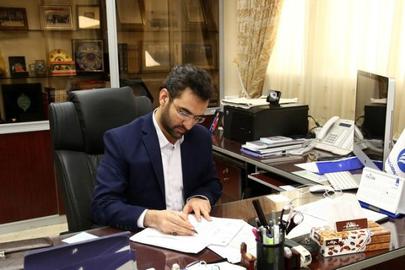
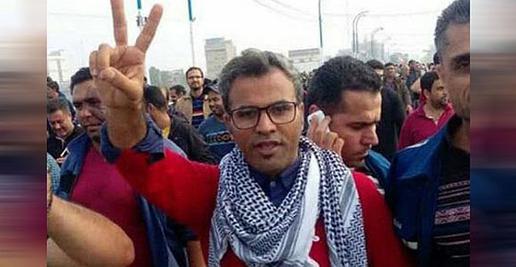
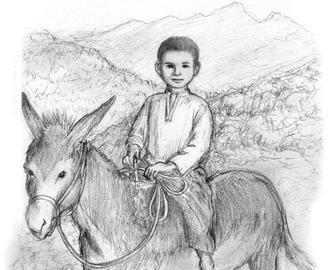

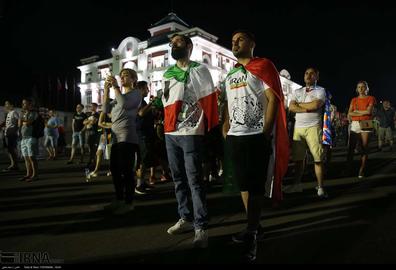
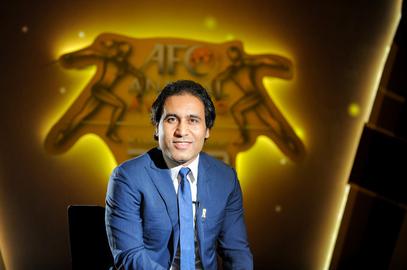


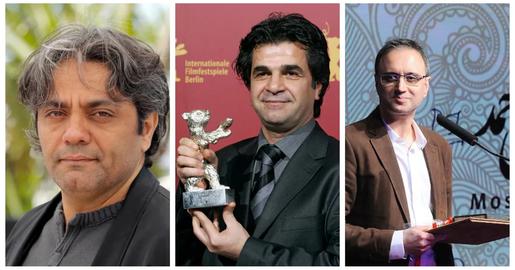
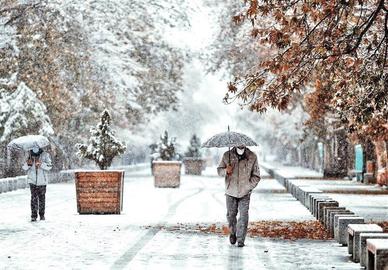
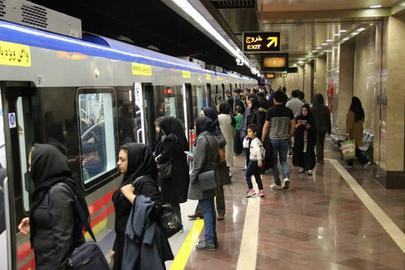
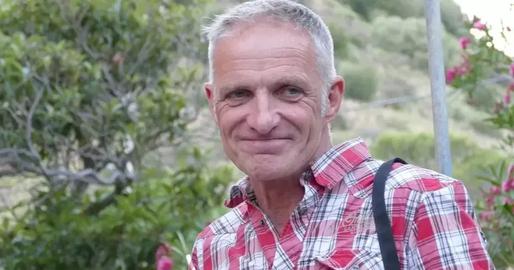
comments